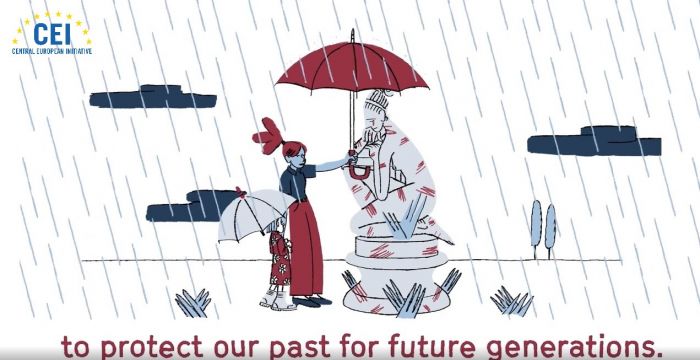The online final event of the 12-month Know-how Exchange Programme (KEP) project “Sustainable Management of Cultural Heritage in the Balkans in Response to Climate Change. Best Practices for Adaptation and Intercultural Cooperation (SMACH)” was held on 25 February.
Led by Venice International University in partnership with key institutions from Italy (City of Venice, CNR, ENEA, University of Tor Vergata), Slovenia (University of Ljubljana) and four Balkan countries (Ss. Cyril and Methodius University in Skopje, University of Belgrade, University of Montenegro, University of Sarajevo School of Science and Technology) this action was designed to respond and adapt to the pressures of climate change affecting both movable and immovable cultural heritage assets in the Balkan area.
Planning and promoting conservative actions, innovative analytical technologies and monitoring systems play a key role in this regard, while the adaptation to climate change and resilience strongly depend on institutional management, decision making and visitor behaviour. These aspects are very relevant for the Western Balkans where an experienced global approach to cultural heritage is often missing. Conservation activities are often carried out by a few experts who are unable to manage such a wide and complex territory with an integrated approach. The lack of dedicated university programmes for cultural heritage studies in some countries does not support the required sustainable approach.
The SMACH project addressed these gaps by promoting know-how exchange between Italy and Slovenia on one side and the four Balkan target countries on the other side by engaging cultural-heritage stakeholders working in the field of restoration, conservation, cultural management, strategic planning, climate change, sustainability and science communication according to the beneficiaries’ needs. The project included the mapping of the state-of-the-art and needs concerning sustainable management of cultural heritage in relation to climate change in the target countries, the development of the project on the basis of identified gaps, the implementation of a programme over four months, with over 40 participants from the target countries, and the organisation of a high-level workshop.
During the gathering the CEI Secretary General Roberto Antonione stated that “intercultural dialogue are essential elements for sustainable human, social and economic development and the CEI region has a great potential in terms of traditional values, diversity of expression, artistic creations and dynamic creative sectors. In this respect, SMACH project is an important initiative and is very much within the spirit of the CEI aimed at encouraging regional cooperation for European integration”.
More info: dovier@cei.int

